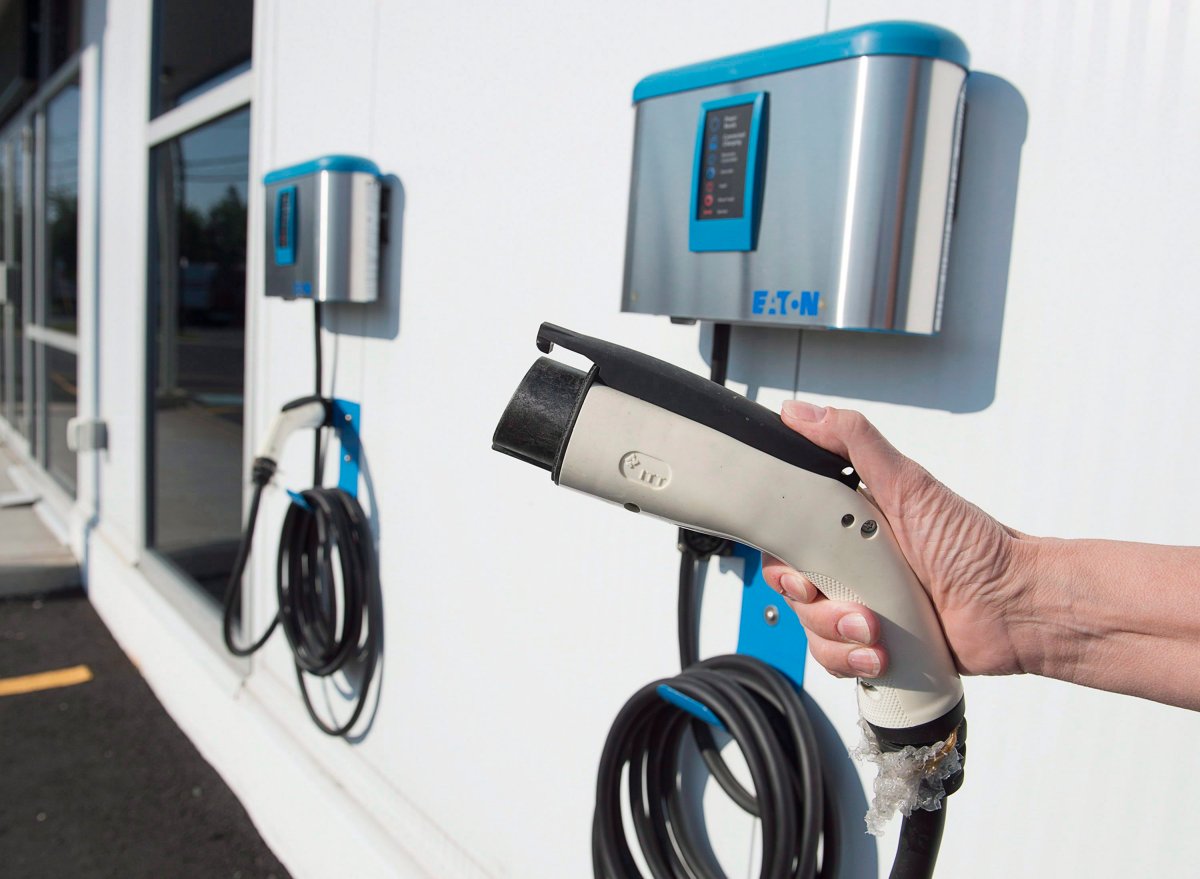The B.C. government is putting up $4 million in rebate funding for people who want to install electric-vehicle charging stations at home or at work.

Under the new program, homeowners can apply for a $350 rebate to install a Level 2 charging station in a single-family home. The province said such charging stations generally cost between $700 and $2,000.
People installing a Level 2 charger in a condo, apartment or workplace building that will be used by multiple users can apply for a $2,000 rebate. The province said these types of charging stations can cost between $2,000 and $12,000.
For multi-user installations, the province said applicants can also get up to five hours of support services from an EV charging station adviser.
WATCH: Vernon is planning for a future where zero emission vehicles are the norm

Level 2 charging stations use a 240-volt power source and can charge a vehicle more quickly than a Level 1 station.
READ MORE: 12 new electric vehicle fast-charging stations coming to B.C.
In order to qualify for the rebates, the installation must be completed and paperwork must be submitted before March 31, 2020.
The money comes from the nearly $190 million the province allocated to its CleanBC program for 2019-20.
WATCH: City of Vancouver considers no-gas zones

The charging station subsidies come on the heels of B.C.’s exceedingly popular electric-vehicle purchase subsidy program.
READ MORE: Legislation introduced to require all new cars sold in B.C. to be zero-emission by 2040
So many drivers took advantage of that initiative that the province had to slash the maximum subsidy from $5,000 to $3,000 to prevent the program from running out of cash.
According to Electric Mobility Canada, British Columbia saw 6,582 electric vehicles sold in the second quarter of 2019, a 174 per cent surge over to the same quarter in 2018.
Those Q2 sales are also up dramatically from Q1, when 2,718 EVs sold, according to the group.
The organization estimates there are about 26,300 EVs on B.C.’s roads.
B.C.’s NDP government passed legislation in May requiring all new light-duty vehicles sold in the province to be zero-emission by 2040.
- ‘Really happy’: Video captures B.C. orca calf eating first meal in 27 days
- RCMP disputes claim of agreement over Surrey transition in leaked letter to solicitor general
- Family hopes B.C. teen’s devastating crash spurs motorcycle safety
- ‘Racialized police brutality’: Indigenous leaders decry Vancouver arrest caught on camera




Comments